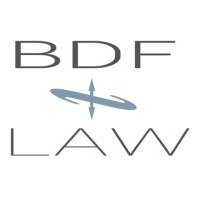Best Elder Law Lawyers in Launceston
Share your needs with us, get contacted by law firms.
Free. Takes 2 min.
List of the best lawyers in Launceston, Australia
About Elder Law in Launceston, Australia
Elder Law is a specialized area of legal practice that focuses on issues affecting the elderly population. In Launceston, Australia, this area of law is becoming increasingly important as the population ages. Elder Law encompasses a wide range of issues including estate planning, retirement living arrangements, healthcare decision-making, guardianship, and protection against elder abuse. Legal practitioners in this field aim to address the unique needs and challenges faced by older adults and their families.
Why You May Need a Lawyer
There are several situations where you might require legal help in Elder Law:
- Estate Planning: Drafting wills, setting up trusts, and managing estates to ensure that your wishes are honored after your passing.
- Guardianship and Advocacy: Situations where you or your loved one need assistance in making financial or personal decisions due to age-related conditions or incapacitation.
- Health Care Directives: Establishing legal documents like powers of attorney and advance health care directives to manage future healthcare needs.
- Retirement Housing: Navigating the complexities of moving into assisted living, nursing homes, or acquiring other retirement accommodations.
- Elder Abuse: Addressing concerns about physical, emotional, or financial abuse and neglect of elderly individuals.
Local Laws Overview
In Launceston, Elder Law is governed by several key legislative frameworks:
- Guardianship and Administration Act 1995: Provides guidelines for the appointment of guardians to manage personal, medical, and financial affairs of those who are unable to do so themselves.
- Wills Act 2008: Outlines the legal requirements for creating a valid will, including the capacity of the will-maker and the formalities involved in execution.
- Retirement Villages Act 2004: Regulates the operation of retirement villages, ensuring the rights and responsibilities of residents and operators are protected.
- Aged Care Act 1997: Focuses on the provision and regulation of aged care services, ensuring suitable care standards are met for the elderly population.
- Family Violence Act 2004: Offers protection to elderly individuals who may be victims of domestic or family-related violence, including abuse by caregivers.
Frequently Asked Questions
What is the role of a power of attorney in Elder Law?
A power of attorney is a legal document that allows an appointed person to make financial and legal decisions on behalf of someone who is unable to do so themselves, often due to age-related conditions.
How can I protect my elderly relative from financial abuse?
You can protect your elderly relative by setting up safeguards such as establishing a power of attorney with a trusted individual, regularly reviewing their financial statements, and educating them about common scams targeting seniors.
What is the difference between a will and a trust?
A will is a legal document that outlines how a person’s assets should be distributed after their death, while a trust is a fiduciary arrangement that allows a trustee to hold and manage assets on behalf of beneficiaries.
How do I contest a will in Launceston?
To contest a will in Launceston, you need to file a legal claim in the Supreme Court of Tasmania, citing reasons such as lack of testamentary capacity or undue influence at the time the will was made.
What should be included in an advance health care directive?
An advance health care directive should include instructions on preferred medical treatments, life-sustaining measures, and appoint someone to make healthcare decisions on your behalf.
When should I consider appointing a guardian for my elderly parent?
You should consider appointing a guardian if your elderly parent is unable to make informed decisions about their personal, medical, or financial affairs due to incapacity.
What legal actions can be taken if an elderly person is being neglected in a care facility?
Legal actions can include filing a complaint with the facility, contacting regulatory bodies, or taking civil action against the facility for neglect under the Aged Care Act.
How does the Aged Care Act ensure quality care for seniors?
The Aged Care Act sets standards for care providers, regulates funding, and ensures compliance with care quality through audits and accreditation processes.
Are there any financial assistance programs for seniors in Launceston?
Yes, there are several government programs offering financial assistance, such as the Age Pension and Commonwealth Seniors Health Card, to eligible senior citizens.
What rights do residents of retirement villages have under local law?
Residents have rights related to occupancy terms, access to services, dispute resolution, and fairness in accommodation fees as stipulated in the Retirement Villages Act 2004.
Additional Resources
For those seeking further information or assistance on Elder Law in Launceston, the following resources may be helpful:
- Tasmanian Elder Abuse Helpline: Provides support and guidance for those experiencing or witnessing elder abuse.
- Legal Aid Commission of Tasmania: Offers legal assistance and advice for seniors on various aspects of Elder Law.
- Office of the Public Guardian Tasmania: Helps with issues related to guardianship and administration for incapacitated individuals.
- My Aged Care: A government initiative that provides information about aged care services and how to access them.
Next Steps
If you need legal assistance in Elder Law, consider doing the following:
- Consult with a Specialist: Seek a legal practitioner in Launceston who specializes in Elder Law to guide you based on your specific needs.
- Assess Financial Aid Options: Determine if you qualify for any legal aid or programs designed to offset the cost of legal services.
- Prepare Documentation: Gather important documents such as wills, deeds, financial records, and medical reports that might be relevant to your case.
- Take Action Promptly: Addressing legal matters sooner rather than later can prevent future complications, especially in cases of abuse or financial exploitation.
- Utilize Community Resources: Reach out to local councils or non-profit organizations that may provide free or low-cost guidance on elder issues.
Lawzana helps you find the best lawyers and law firms in Launceston through a curated and pre-screened list of qualified legal professionals. Our platform offers rankings and detailed profiles of attorneys and law firms, allowing you to compare based on practice areas, including Elder Law, experience, and client feedback.
Each profile includes a description of the firm's areas of practice, client reviews, team members and partners, year of establishment, spoken languages, office locations, contact information, social media presence, and any published articles or resources. Most firms on our platform speak English and are experienced in both local and international legal matters.
Get a quote from top-rated law firms in Launceston, Australia — quickly, securely, and without unnecessary hassle.
Disclaimer:
The information provided on this page is for general informational purposes only and does not constitute legal advice. While we strive to ensure the accuracy and relevance of the content, legal information may change over time, and interpretations of the law can vary. You should always consult with a qualified legal professional for advice specific to your situation.
We disclaim all liability for actions taken or not taken based on the content of this page. If you believe any information is incorrect or outdated, please contact us, and we will review and update it where appropriate.











